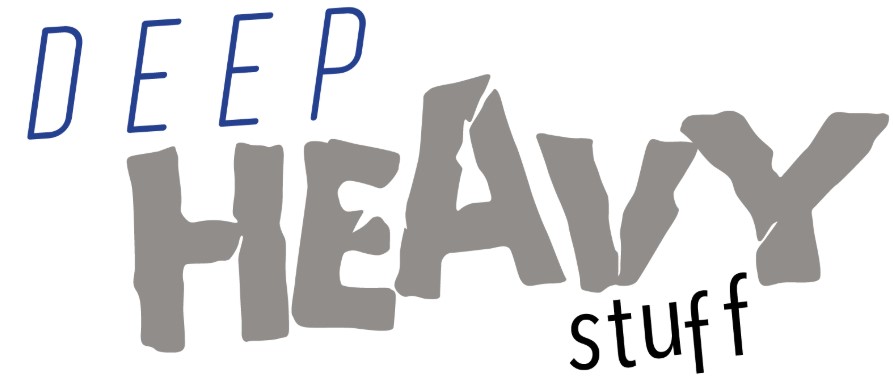“After Life”, an outstanding drama on Netflix chronicles
the grieving process of Tony Johnson (played by Ricky Gervais), a middle-aged
newspaper reporter who just lost his wife due to cancer. In Episode 4 of Season 2, Tony’s grief again
becomes overwhelming as he is caught in a downward spiral of self-pity, and excruciating
mental anguish.
This is a critical point in the show because, under similar
pressures in Season 1, Tony attempts suicide. But then the story takes an
unexpected turn. Tony interviews a young woman addicted to plastic surgery. The
woman panics when Tony helps her realize she has a mental illness. “You think
I’m mental?” she exclaims. Tony affirms her by replying, “No more than the rest
of us. As I say, we’re all screwed up, in one way or another. So, it makes it
normal.”
Later, when he is experiencing his most intense agony, he
begins to see the pain and struggles of all the people around him. He considers
himself a “loser” because of his personal loss and his inability to overcome it,
but then realizes that we are all losers. He later uses that term (in a
non-derogatory way) to describe his co-workers to an associate. Once he is able
to see the pain of others, his empathy causes him to take actions to help
relieve the sufferings of the people around him.
The episode concludes with Tony receiving a message from
his wife, through pre-recorded video, about how important it is to appreciate
the people around us, no matter their faults and irritations. And, most
importantly, to tell these people, they are appreciated and important to us.
Tony then begins to see the value of the people in his world, even those who
frustrate and irritate him, in his deep state of grief.
Our World
All the time, maybe even every day, we encounter people in
our lives who in some way, even small ways, help us along in our journey. And
every one of them has faults, because they are human. Some of them are even
irritating. We take these people for granted. We expect them to help us, assist
us, serve us, listen to us, whatever. It just becomes routine. We don’t notice
that they work hard, are struggling, and are dealing with personal issues (just
like we are, right?). They just fade into the background of our lives, until we
don’t notice them at all. Until they are gone, sometimes forever. And then we
miss them and maybe only then realize how valuable they were too us.
So we need to tell everyone in our lives that we appreciate
them when they do something that helps us out. This goes one step beyond an
obligatory “thank you”. It sounds like this, “Thanks for doing this for me. I
really appreciate your help. Or maybe, I really appreciate you. One word we all need to say more is appreciate.
Appreciate, appreciate, appreciate, appreciate.
Because, people want to feel appreciated. Even more
important, people need to be appreciated. So please tell them you appreciate
them. And I’m not talking just about your close friends and main squeeze. No,
you need to tell even the people you don’t particularly like, even those
irritating people with faults, that you appreciate their effort and contributions,
when appropriate.
Everyone needs to know they are significant. There are many
people around me that I expect things from. I expect, I expect, I expect, I
expect, and I get cranky when these expectations are not met. But I need to
appreciate it more when these expectations are achieved, and especially when
they are exceeded.
Recently, I said farewell to a friend who was moving far
away. This person had done a tremendous job on an important project for me. And
yes, I said thank you, but I failed to say how much I appreciated the effort. I
did realize my omission later that evening and expressed my appreciation in an
email. But those words needed to be said in person, yet somehow, they failed to
leave my lips. I don’t say that word enough and have tried to be much more
appreciative lately.
A few weeks ago, a high school friend died of cancer. I was
touched by the comments my classmates posted on Facebook. Yes, everyone says
good things about the recently departed, but these praises were plentiful, and
more importantly, they were real. People, some who hadn’t seen the man in
years, were appreciative of the life he had lived, the person that he was. I
know the guy would have been totally astonished if he could have read all the
tributes listed there (Who knows? Maybe he could). Now my classmates didn’t have the opportunity
to express their appreciation in person because few of them had any contact
with him recently. So, I hope that the people in his world told him some of the
same things posted on Facebook in person; that they appreciated him, the work
that he did, and the life that he led.
Thus, the need, the decency, the urgency, to tell those in
our world that we appreciate them. And so, I appreciate you, for reading, sharing,
and commenting on my blog. If you are a friend or associate, I appreciate you. And I would greatly appreciate it, if you
heeded these words. Peace.


